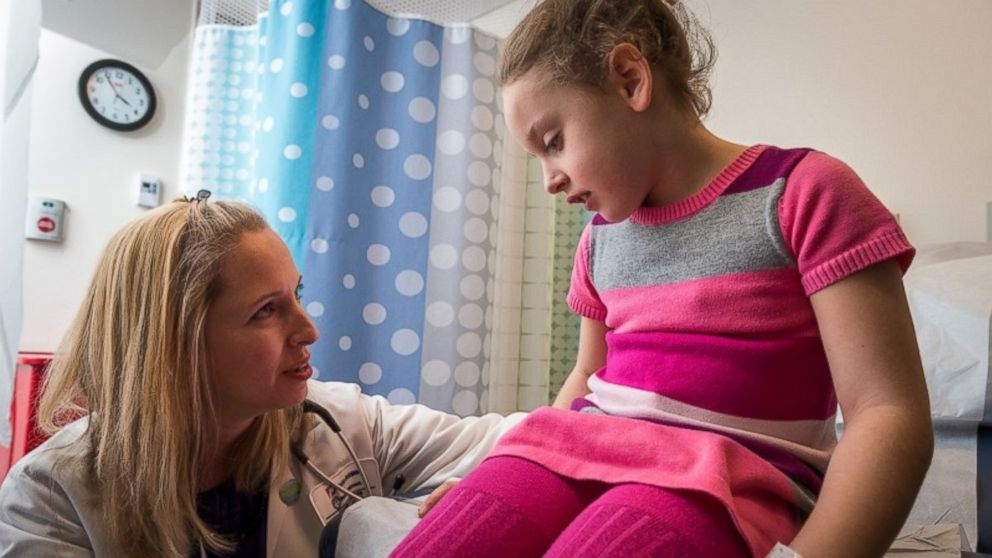‘Precision Medicine’ Pills Shrink Little Girl’s Rare Brain Tumors After Chemo Fails
Allison Schablein, 8, was diagnosed with brain cancer in 2012.

— -- Today, Allison Schablein looks like a healthy 8-year-old, recently finishing her dance class and looking forward to summer. But this little girl from New Hampshire has overcome a type of cancer that is often fatal for children.
At age 4, Allison started telling her parents that she had headaches.
"We were back and forth with the doctor," Allison's father Dan Schablein told ABC News. "Then headaches started getting really bad to where it was almost on a daily basis. It would get so bad it would make her throw up."
In December of 2012, she had an MRI that revealed multiple tumors in her brain and spine. Emergency surgery helped relieve her nausea, but doctors discovered she had a rare type of cancer called anaplastic astrocytoma that was spreading.
Though her doctors at the Dana-Farber/Boston Children’s Cancer and Blood Disorders Center put Allison on a chemotherapy regimen, her father explained the disease was so rare that no specific treatment existed. Four month after her diagnosis, Allison's doctors came back with heartbreaking news: the cancer had become resistant to the chemotherapy.
"They had nothing else," Schablein told ABC News. He said he and Allison’s mother started searching. “We had copies of her brain scans and we sent them all over the world, China, Europe, South America,” he said. “Everybody got back to us said there’s nothing to do."
However, Allison's doctor at Dana-Farber/Boston Children's Cancer and Blood Disorders Center had another idea. They were launching a clinical trial using a medication designed for melanoma, or skin cancer, patients. The new medication targeted a specific mutation often found in melanomas that was also detected in Allison's cancer.
It was part of a rapidly growing area of cancer therapy called "precision medicine" or targeted therapies that attack specific molecules in cancer cells, instead of killing all rapidly dividing cells like chemotherapy does.
According to the National Cancer Institute, "precision medicine" is "a form of medicine that uses information about a person’s genes and proteins to prevent, diagnose, and treat disease."
But because this particular medication was untested for children, Schablein and his wife were concerned about giving it to Allison.
"We didn't want our child to be a guinea pig," Schablein said. "It’s a major thing to put yourself out there in a first [trial]. We thought about it and it started in May."
Allison began a regimen of just two pills a day. After two months of treatment, Allison went in for another MRI to see how the medication may have helped reduce her tumors. Her medical team was stunned to find no sign of the tumors on the scans. Though this didn’t mean she was fully cured, the cancer was no longer visible in detectable levels.
"I stood up and screamed," Schablein recalled. "It was just shocking and the most incredible feeling. I felt like I had just given birth again – another, re-gift, of life."
Allison is not designated as "cured" because of the severity of her disease; she remains on the experimental drug that is still not indicated for Allison's type of cancer.
But in the years since she went on the drug, her cancer has not returned in detectable levels.
Schablein said his goal now is to tell her story and hopefully help and give hope to other people who feel they are out of options -- especially other children with the same kind of rare cancer as Allison.
"I want to spread the word. I want people to know that even in some of the most dire situations just to not give up," he said.




